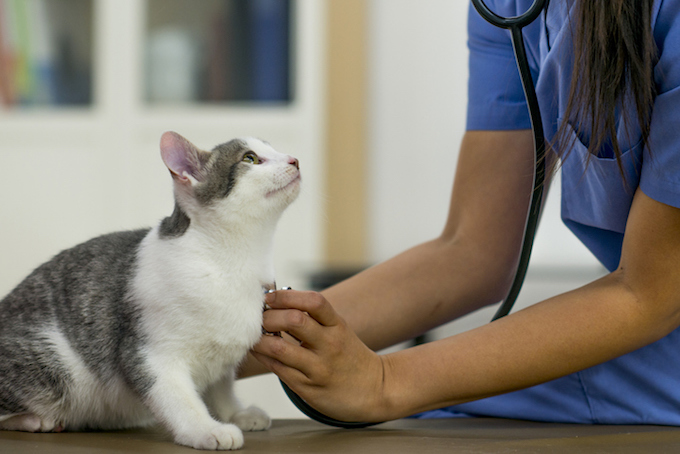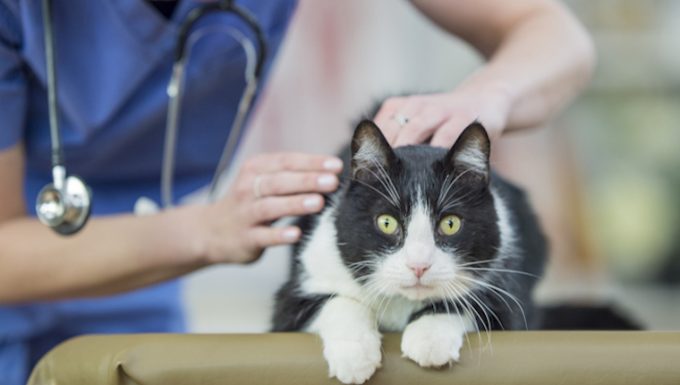Enlarged spleen in cats happens when the spleen becomes inflamed and enlarged. The condition is often a sign of another more serious medical issue.
The spleen is an organ that is found to the left of a cat’s stomach. Specifically, the spleen helps filter and store blood.
Technically, the condition is also known as splenomegaly in cats.
If you see the signs of the condition in your cat, then get to a veterinarian for a proper diagnosis and treatment.
Here’s what you should know about the symptoms, causes, and treatments for the condition.
Symptoms of Enlarged Spleen in Cats
The condition produces a range of symptoms. For instance, some of the most common symptoms include:
- Diarrhea
- Acting lethargic
- Fainting
- Weight loss
- Stomach pain
- Vomiting
- Loss of appetite
Causes of Enlarged Spleen in Cats

The cause of the condition can be one of a wide range of things. For example, some of the common causes of the condition include:
- Bacterial infections
- Inflammatory bowel disease
- Autoimmune problems
- Heartworm
- Fungal infections
- Trauma
- Heart failure
- Stomach injuries
Treatments for Enlarged Spleen in Cats
Firstly, your vet will ask about your cat’s symptoms. Secondly, your vet will ask about your cat’s full medical history.
Thirdly, a full physical examination will be carried out. Blood and urine tests will be taken. Additionally, ultrasounds and X-rays can help to monitor the spleen. Also, a process called fine needle aspiration can help diagnose the condition.
Ultimately, treatment will target the underlying cause of the condition. For example, antibiotics can be used to fight off any infections. As always, if your vet prescribes your cat any medicine, make sure to stick to the correct dose and frequency instructions. Also, complete the full course of medicine.
Finally, in some cases, removing the spleen will be recommended. This process is called a splenectomy. While recovering, make sure to provide your cat with a calm and quiet home environment. Also, limit their physical activity until they recover.
Have you ever cared for a cat who suffered from this condition? How did your vet help your cat recover? Let us know in the comments section below.




